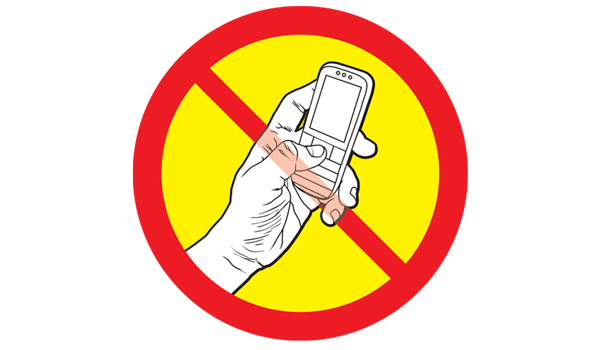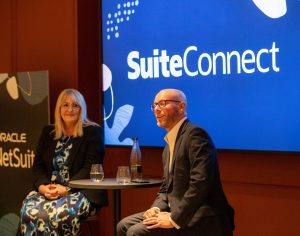We live in technology-saturated times. When American navigation service provider Telenav identifies that a third of people would rather hang onto their mobile than have sex, you can see how obsessive we are about our digital technology. And why shouldn’t we be? It keeps us connected, entertained, informed and creatively-fulfilled. But there are a few reasons why sometimes a taste of cold turkey could actually do us some good.
1 It could make you more productive. Counterintuitive though it may seem, research from the University of California, Irvine, has demonstrated that forgoing email at work can both lead to a lower, more natural heart-rate as well as increasing levels of concentration by preventing unnecessary ‘window-hopping’. Whilst technology increases our ability to connect and gather information, this is more evidence that it can sometimes prove counter-productive, particularly in undermining our levels of concentration.
2 Life is about quality, not quantity. Whilst having access to all the world’s information on your hip is an exciting prospect, (not to mention rather useful in settling trivia-based pub disputes), more information and faster speeds isn’t necessarily going to equate to a better quality of life. Research from Virgin Media Business this summer identified that only 10% of us believe that increased connectivity will improve our quality of life. And in an age where most of us are taking our inboxes on holiday with us, the occasional detox would probably do us no harm at all.
3 Whilst technology allows us to stay in contact with more and more people, it doesn’t actually necessarily increase our ability to form social ties. Research into the issue by Intersperience points to an anthropological model, ‘Dunbar’s Number’, which suggests that the human brain is unable to process more than approximately 150 social relationships in a stable manner before social bonds are stretched too far. Past this point we struggle to maintain mutual and reciprocal relationships. Paul Hudson, the organisation’s chief exec, reckons that some of relationships we maintain through social networking are almost voyeuristic in nature, rather than operating from genuine social bonding.
4 It may seem to make sense from a productivity point of view to make use of dead times like the commute or lunch break by getting on our smartphones, but it’s actually only by taking downtime that we’re able to build our experiences into a coherent picture. By keeping our brains in a state of constant stimulation we’re depriving them the time to correctly process and store the valuable information we learn. So whilst having access to all that information is unarguably a good thing, taking some time to reflect is often the best way to make use of it.
5 Less time on your smartphone equals better sleep. Whilst most of us are mentally acclimatised to being stimulated to such high levels, our bodies are still a long way from adjusting. Our circadian rhythms aren’t really equipped to decelerate from 60 – 0 in just a few seconds. Which means overdoing it on Angry Birds at bedtime can mean a much lower standard of beauty sleep. Additionally the Lighting Research Centre, of New York’s Rensselaer Polytechnic Institute, has identified that any more than two hours on a backlit device in the evening can suppress melatonin levels by up to 22%. This makes for a rather fitful forty winks.
6 Every time you take a fix, you’re becoming ever more addicted. This may sound like dramatic license but unfortunately it’s the biological truth. When we’re enjoying our technology it causes a release of dopamine in our brain; this is the chemical that causes us to seek out pleasurable activities and is also the thrill addicts seek when drawn to recreate any high, whether that be a cigarette, a skydive or crack cocaine. Whilst it is a natural response, the more we repeat an activity to stimulate it the stronger the compulsion becomes. There is plenty of evidence to suggest that our technology stimulates this itch and – as with gamblers or those who compulsively overeat – we can become addicted to the payoff using it gives us.
7 Technological addiction is currently under review for classification as a genuine mental health disorder. The Diagnostic and Statistical Manual of Mental Disorders, Fourth Edition, 1994 (DSM- IV) is the most widely recognised classification of mental health disorders and inclusion in an upcoming volume would signify that technological addiction is a recognised mental illness. Whilst ‘internet-use disorder’ sounds like a cute term, the fact it potentially is coming to be recognised as a genuine disorder signifies the severity of the problem.
Taking in all of these points, the ramifications are disturbing to say the least. However it’s important to remain realistic. Most of us don’t have a problem with our technology, and it can provide huge benefits. From helping to organise mass-protests, spreading charitable aims and revolutionising the relationship between businesses and consumers, technology is changing our world for the better. It’s just worth bearing in mind that a little moderation can help us to better appreciate any of life’s pleasures, whether that be a relaxing glass of Sauvignon in the evening or indulging in a little social networking – in the real world.
Share via:


















































